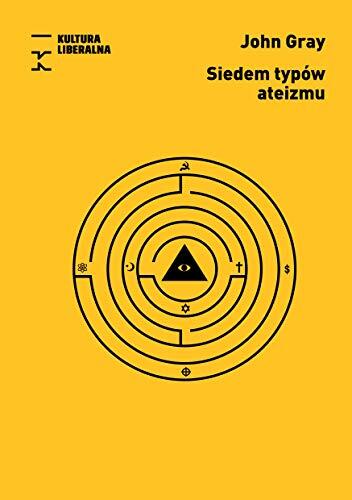
Siedem typow ateizmu
작성자
John Gray
아직 평점이 없습니다
Business & Economics
형식
페이퍼백
페이지
242
언어
폴란드어
출판됨
Jan 1, 2020
출판사
Fundacja Kultura Liberalna
ISBN-10
8366619028
ISBN-13
9788366619029
설명
In a thought-provoking exploration, a seasoned philosopher delves into the nuances and variations of atheism. The author guides readers through seven distinct types, examining their foundations, implications, and the philosophical debates that surround them. Each type offers a unique lens through which to view the absence of belief in a deity, challenging conventional notions and encouraging deeper contemplation.
Through witty prose and sharp analysis, the author juxtaposes different atheistic perspectives against a backdrop of cultural and historical contexts. The narrative transcends mere definitions, engaging with ethical questions and the existential dilemmas that often accompany a secular worldview. By exploring these themes, the author invites readers to reevaluate their own beliefs and the societal structures built upon them.
As the discourse unfolds, readers may find themselves reflecting on their personal experiences and the influence of secular thought in a rapidly changing world. The dialogue sparks curiosity and fosters an environment of intellectual engagement, compelling both atheists and theists to reconsider the foundations of their beliefs.
Ultimately, the work stands as a testament to the complexity of belief systems and the myriad ways individuals navigate their search for meaning outside traditional religious frameworks. It challenges preconceived notions and offers a rich tapestry of ideas that resonate with the questions of existence that many grapple with in contemporary society.
Through witty prose and sharp analysis, the author juxtaposes different atheistic perspectives against a backdrop of cultural and historical contexts. The narrative transcends mere definitions, engaging with ethical questions and the existential dilemmas that often accompany a secular worldview. By exploring these themes, the author invites readers to reevaluate their own beliefs and the societal structures built upon them.
As the discourse unfolds, readers may find themselves reflecting on their personal experiences and the influence of secular thought in a rapidly changing world. The dialogue sparks curiosity and fosters an environment of intellectual engagement, compelling both atheists and theists to reconsider the foundations of their beliefs.
Ultimately, the work stands as a testament to the complexity of belief systems and the myriad ways individuals navigate their search for meaning outside traditional religious frameworks. It challenges preconceived notions and offers a rich tapestry of ideas that resonate with the questions of existence that many grapple with in contemporary society.